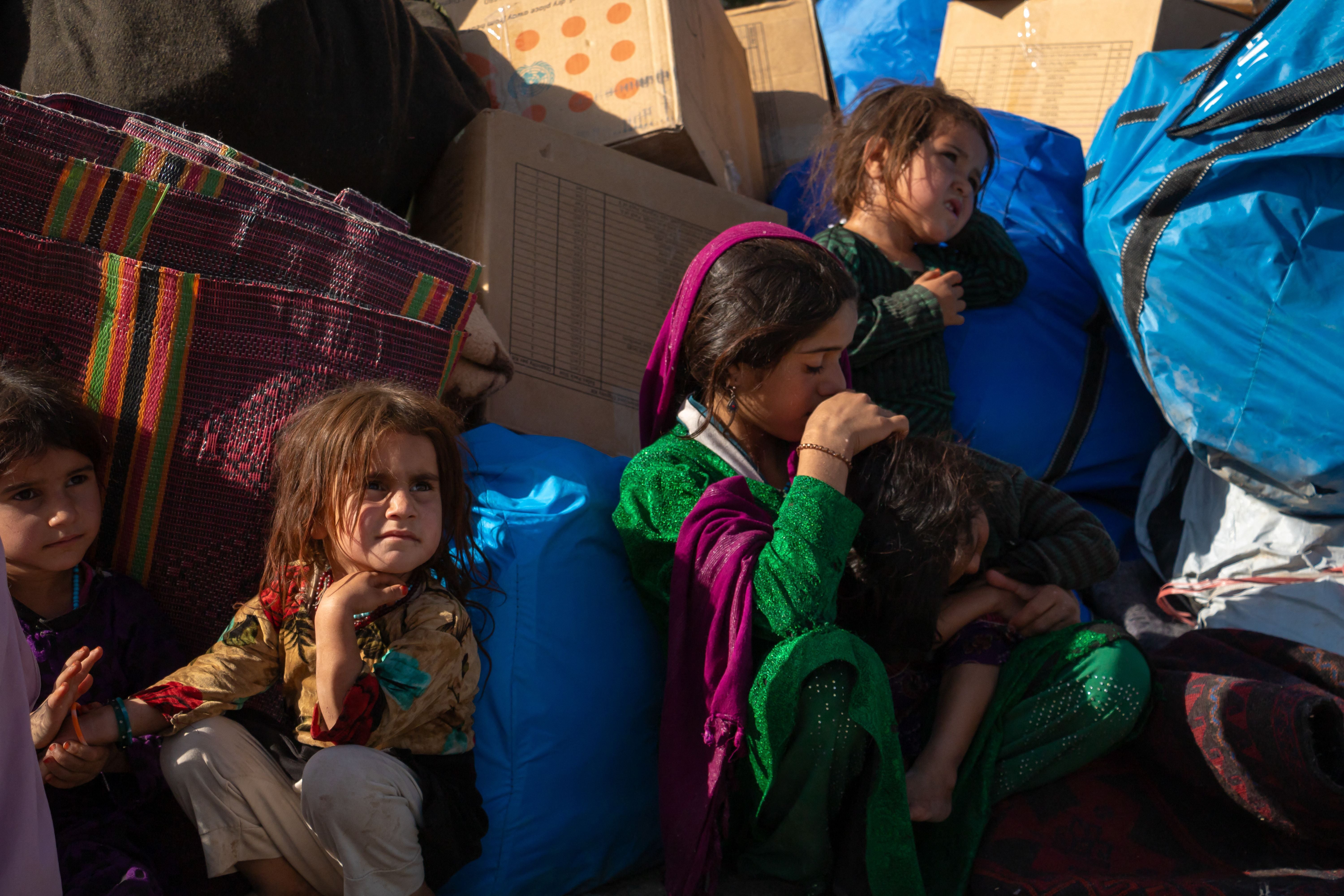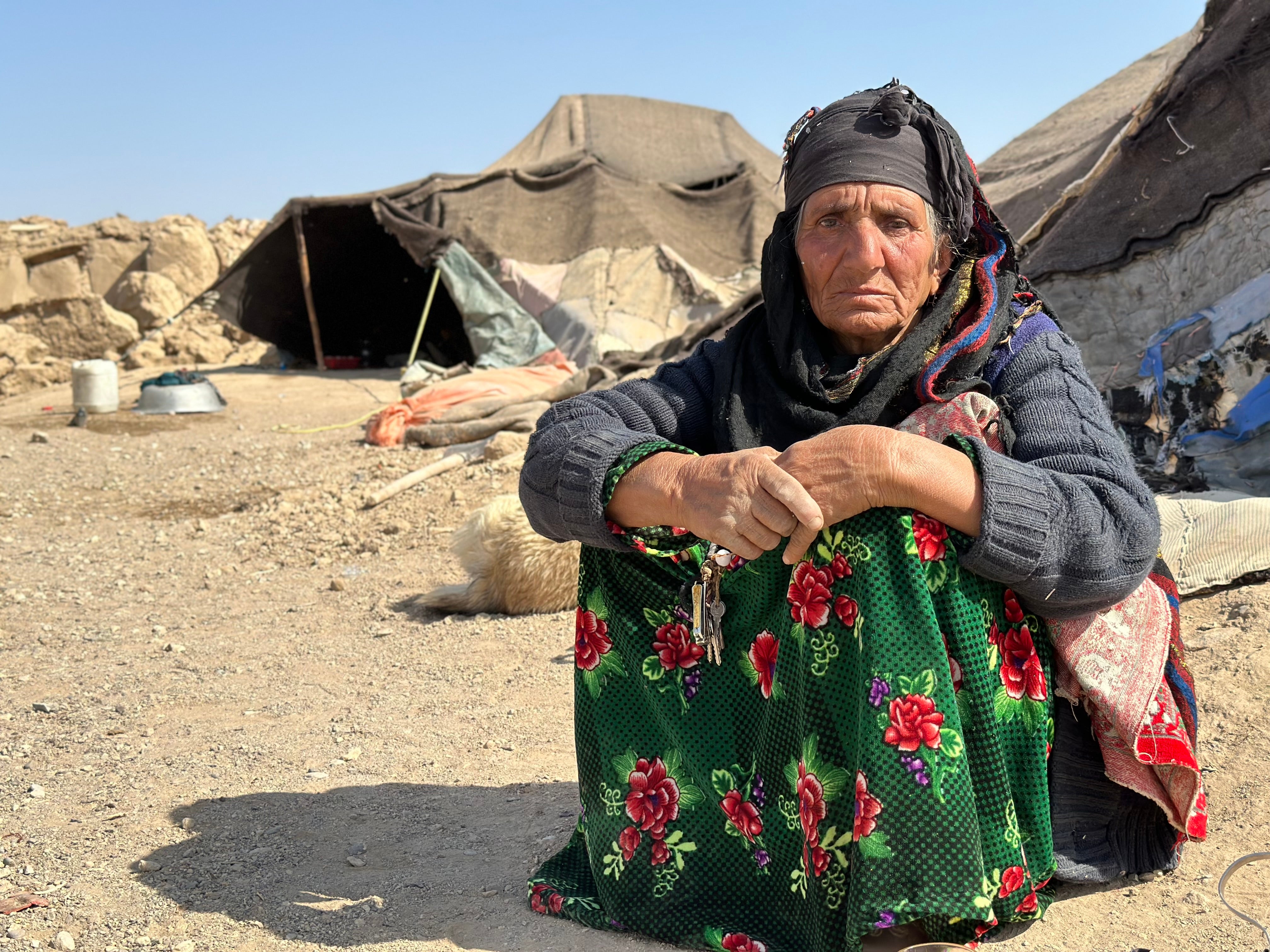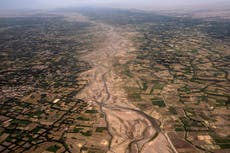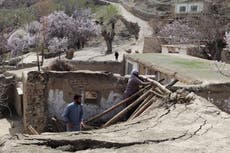Afghanistan rescue efforts hit by successive quakes and storms: ‘Breastfed babies have lost their mothers’
Dust storms blow away makeshift tents humanitarian aid teams set up in Herat for quake survivors
Dozens of breastfed babies have lost their mothers in Afghanistan and millions of people left homeless, as the emergency response in the country collapsed after successive earthquakes and storms.
Nearly 20,000 people across six Afghan districts and 30 new villages were affected by the latest of four earthquakes that have hit Herat province in just a week, killing some 2,000 people in total.
The country’s population was already struggling with a financial collapse following the Taliban takeover in August 2021, which has also complicated efforts by international rescue agencies to reach the remote area affected.
Dozens of newborns who have lost their mothers in the earthquake cannot be breastfed, said Salma Ben Aissa, Afghanistan country director with the International Rescue Committee, as she emphasised the urgency of the rescue and relief operation in Herat.
“During our emergency relief search, we have seen several cases of babies who are less than two years old that need to be breastfed but have lost their mothers. We can’t find milk for them [through other mothers] and we don’t have it with us either,” Ms Ben Aissa told The Independent.
Women and children in Herat are already nutrition deficient, she said, adding that the province’s official emergency efforts have completely collapsed.
Children who have lost one or both parents were likely to be taken in by surviving relatives or community members, aid officials said, pointing out that orphanages in Afghanistan at this point were non-existent or rare.
“Some returnees, likely who had come from Pakistan, were searching for their families but only saw their houses completely demolished,” Ms Ben Aissa said.
The affected regions in Afghanistan have been hit by massive storms in the last week, as thick blankets of dust approached earthquake relief camps and blurred visibility in the region to near zero.
Dust storms have blown away and damaged the basic makeshift tents humanitarian aid teams were setting up in the city for those injured, and for hundreds who were sleeping in the open due to the fear of aftershocks.
Some of the villages that barely withstood the previous week’s earthquakes were reduced to rubble on Sunday after another 6.4 magnitude tremor struck the area.

“Our teams are reporting the bleakest of scenes,” said Arshad Malik, country director for Save the Children in Afghanistan. “Hundreds of tents have been set up on open plains to shelter families who have lost everything, which themselves are exposed to brutal winds and dust storms. Former villages are just rubble, rock. What precious little belongings families once had are completely buried,” Mr Malik said.
He called it a crisis on top of a crisis for Afghanistan. “Even before this disaster, children were suffering from a devastating lack of food. At the same time, the harsh winter is approaching fast while the children and families have no shelter or warm clothes to protect themselves,” he said.
Already stretched thin on the economic front after the Taliban took over, public institutions such as schools and hospitals were struggling.
The IRC and other humanitarian aid workers were already alert to an unfolding and urgent healthcare situation in Herat even before the quakes struck. In the past month, 28 hospitals in the country lost financial support. Another 30 before that lost help from donors via international non-profits that were supporting them.
This directly hit women and children, in most cases, with aid agencies estimating that they make up 70 to 90 per cent of the casualties in the Afghanistan quakes.
There would have been no “gender dimension” to the death toll if the quake had happened at night, said Jaime Nadal, the Afghanistan representative for the United Nations Population Fund. As the first quake happened during the day, however, many women were at home while men were out.

Those who survived were seen collecting their remaining belongings, such as mattresses and storage boxes, beside the piles of rubble that were once their homes.
The World Food Programme said it will need to assist more than 100,000 people affected by the earthquake for several months to help them stay alive and rebuild their lives.
“We have launched an initial response but cannot continue without an additional injection of funds. We urgently need $19m to support over 100,000 people in the aftermath of the devastating earthquakes,” Philippe Kropf, head of communications at WFP Afghanistan said.
Join our commenting forum
Join thought-provoking conversations, follow other Independent readers and see their replies
Comments




Bookmark popover
Removed from bookmarks